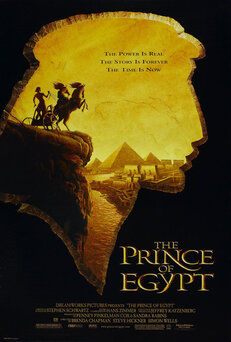
Please note: The following text contains spoilers. Viewer discretion is also advised – The Prince of Egypt is rated ‘U’. For more details on the film’s content from a Christian perspective, read Focus on The Family’s review from Plugged In:
www.pluggedin.com/movie-reviews/princeofegypt/
Without meaning to complain, I often take issue with the use of exaggerated, ecstatic praise that is bestowed upon films or television, when critics offer their thoughts and opinions on them. Such critics have a tendency to overexaggerate just how good a piece of entertainment can be, which is often down to a film capturing the cultural zeitgeist but directing such unholy reverence toward a piece culture is something I just cannot understand. I can actually call to mind various examples of critically lauded films that were dubbed ‘life-changing’, or ‘deeply moving’, which only elicited for me that ‘meh’, shoulder-shrugging response. But in a way, that’s unsurprising – after all, our opinions of entertainment and culture are purely subjective. But if I was to ever consider bestowing such rapturous praise upon a film, calling it ‘awe-inspiring’ or truly ‘life-changing’ (that old chestnut!) it could only really be directed in earnest toward The Prince of Egypt. Yes, I’m contradicting myself, but I have no issue in directing such rapturous praise towards this contemporary, animated classic. Why, you ask? Well, for starters, the merits of this animated film all work to artfully depict the awesome, mighty power of a saving God – one who remains active, and intent upon saving all who turn to Him, today. Not only is this film (and the particular message it carries) completely relevant, but it’s also essential…
Whilst The Prince of Egypt was created in the darkness of Hollywood, this is an unexpected, largely faithful retelling of the Exodus story – due in large part to its respectful creative team who sought the advice of theologians and faith leaders from various communities, to ensure that the film was told as accurately as possible. The core elements of the story remain (although accompanied by and/or represented through musical numbers): Miraculously rescued at birth from the clutches of the murderous Egyptians, Moses grows up in the care of Pharoah’s household, completely unaware of his heritage and the plight of his people, the Israelites, who are being enslaved by the Egyptians. Upon being awakened to the truth and exposed to the cruelty inflicted upon his people, the Israelites, Moses kills an Egyptian slavedriver in a fit of rage and flees the region. There, in the wilderness, he encounters God personally, learns of His plans to liberate the Israelites, and discovers his calling. Naturally, Moses is frightened, confused, and doubtful of the mission’s potential for success – for who could possibly dream of waltzing into the mighty nation of Egypt, demanding “Let my people go!”? Although difficult, Moses (and by extension, us) soon learns that what is impossible with man, is entirely possible with God.
They say that Rome wasn’t built in a day. Well, the same can be said of Ancient Egypt - a civilization built upon the blood, sweat and tears of slaves. And of the many who were oppressed in Egypt, God’s enslaved people, the Hebrews, were oppressed to the point in which they “groaned because they were forced to work very hard” and “cried (out to God) for help” (Exodus 2:23, ICB). Within the film’s opening segment, we even hear them sing a song of lament, entitled: “Deliver us!”. Such pain, anguish and abuse are difficult to watch, especially because the filmmakers depict God’s people as having fallen into despair, and lost hope in their creator. But as we read in Exodus 2:24 (ICB), God “heard their cries”, “and he remembered the agreement he had made with” their forefathers. In The Prince of Egypt, God does indeed hear his people’s cry, and acts, preparing the way for their salvation through the purposeful sending of Moses into the path of Pharoah’s household. Here, we see that God is not dead, or inactive. He is completely alive and active, ready to liberate His people.
It is God’s desire to see His creation (for we were all formed by Him in our mother’s wombs) freed from the grip of sin on their lives, and like His movement of power in Egypt so long ago, He has moved in power since, and continues to do so today, through Jesus Christ – His one and only Son. His movement of power, though different, is just as incredible: Each and every one of us have “sinned and is far away from God's saving presence” (Romans 3:23, GNT). So far, in fact, that we cannot liberate ourselves from its grasp. We are all slaves to sin – the darkness that we choose to surround ourselves within, in our daily lives: “Jesus said to them, “I am telling you the truth: everyone who sins is a slave of sin.” (John 8:34, GNT). And there is an eternal consequence to our actions (as well as sometimes, a present one): “The soul who sins shall die” (Ezekiel 18:20, ESV).
But God, like in His interaction with the Hebrews, does not wish for us to remain enslaved. Rather, he would always want to see us freed and enter into close friendship and relationship with Him today, through His Son Jesus Christ: “He does not want anyone to be destroyed, but wants all to turn away from their sins.” (2 Peter 3:9, GNT). He achieved this through sending His one and only Jesus, “who never sinned, to be the offering for our sin, so that we could be made right with God through Christ.” (2 Corinthians 5:21, NLT). When Jesus died upon the Cross, having taken upon himself your sin and mine, and rose from the grave three days later, He made a way for us all to walk out of our spiritual tombs, brought upon by our slavery to sin. And just like the Israelites, who could march out in freedom if they wanted to, we could choose to do that today. However, we have to make a choice: Remain in our own Egypt’s – places of spiritual slavery, but comfortability – or step out into new life, in the knowledge that we are free. One way or another, we must choose – for the eternal “payment for sin is death” (Romans 6:23, ICB). But God, in His great love and mercy, offers us “the free gift of life forever in Christ Jesus our Lord” (Romans 6:23, ICB), today. Will you allow Him to lead you out of Egypt today?
Why not prayerfully invite a friend or family member who doesn’t yet know Jesus, to watch The Prince of Egypt for themselves? Use the film’s themes to ask them what they thought of the film, if they spotted any links to Christianity and what they might think of the Gospel’s response to this subject.
If you feel able to, ask them what they think about the film’s representation of Moses as a reluctant hero – what would they do if placed in that same position?
At one point, Moses is accused of never having cared for the Hebrew slaves, despite them being his own people. He says, “I did not see because I did not *wish* to see”. Ask your friend if they too have ever chosen to look away in the face of people’s suffering – why is that?
As noted by David Pawson in his book Unlocking The Bible (pg. 99), “Exodus is the story of the biggest escape in history”. Why? It tells of how God’s chosen people, the Israelites, effectively walked out of one of the most heavily guarded, fortified and sophisticated civilizations of their day, and stepped into freedom from captivity, in relationship with God. It is a truly awesome tale. Although one might class it as one of the biggest escapes on biblical record, there is one even greater than this: Salvation from the grip of sin and death upon our lives.
Take the opportunity to share the hope of the Gospel message with them, encouraging them in the knowledge that even though humanity is enslaved by their sin, God is offering to lead us into new life with Him today, through His son Jesus Christ, who offers salvation to all who call upon Him. So, why not invite them to turn from their sin, and receive Him for themselves, today?
Prior to watching the film for yourself, however, take a moment to pray that God would speak to you through the show. If you feel comfortable, pray this prayer over all of your future, film-watching experiences:
Dear Lord, as I watch this film, I ask that you would be present here with me. Highlight to me anything within it that is honourable, anything that can be used in conversation for your Kingdom purposes. Amen.
The Prince of Egypt is currently available to rent through Amazon Prime Video, YouTube Movies and AppleTV.

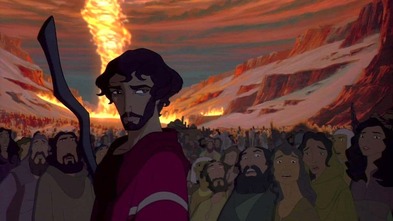
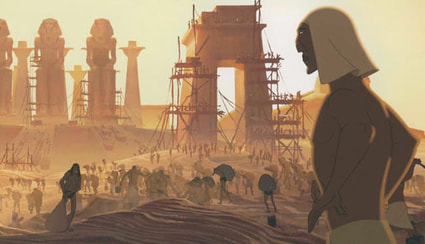

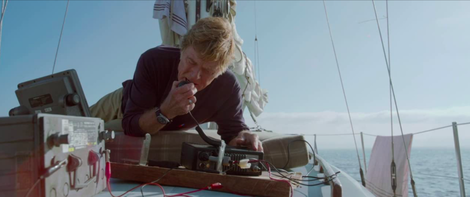

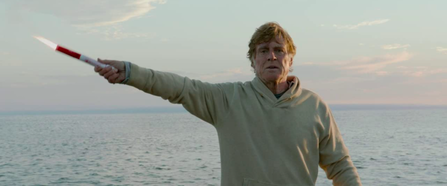



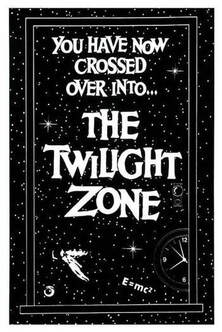
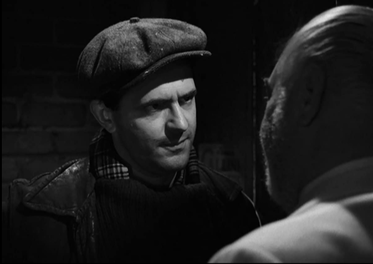
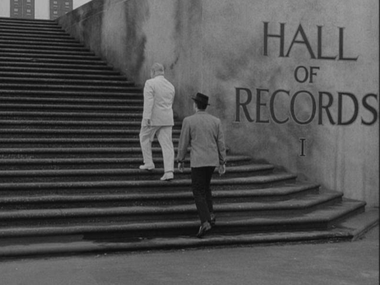
 RSS Feed
RSS Feed